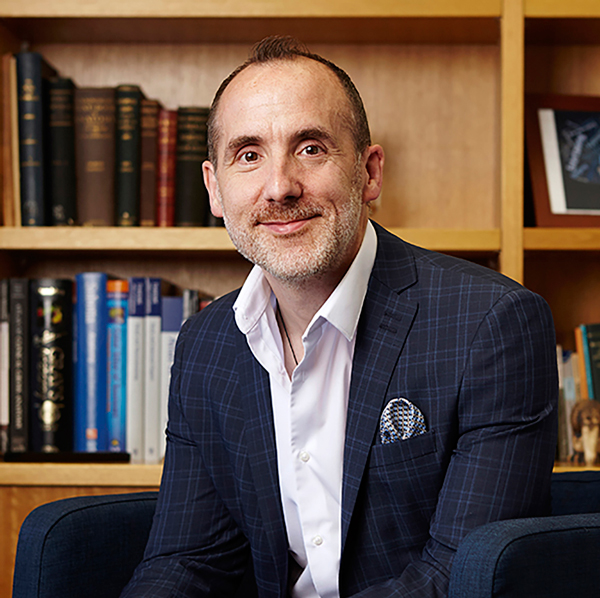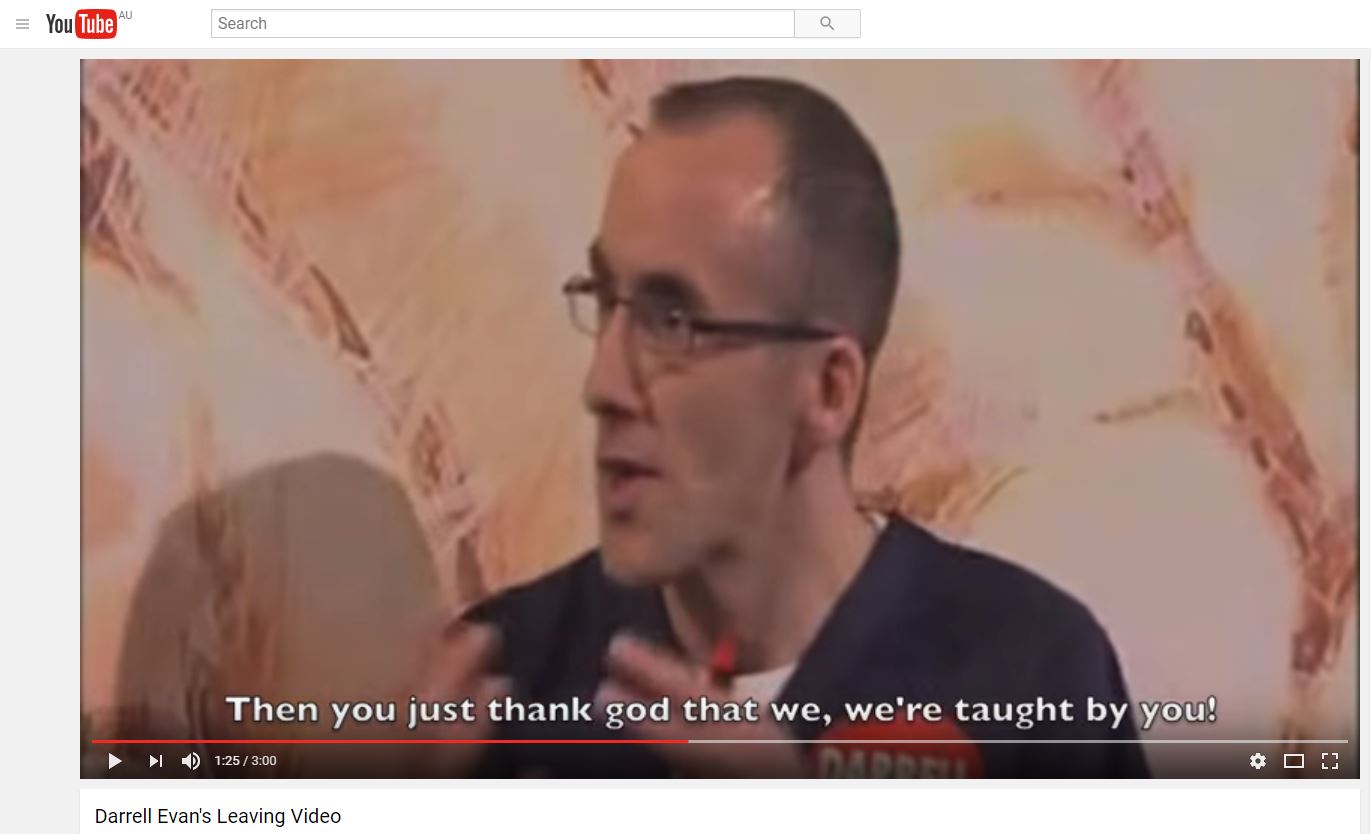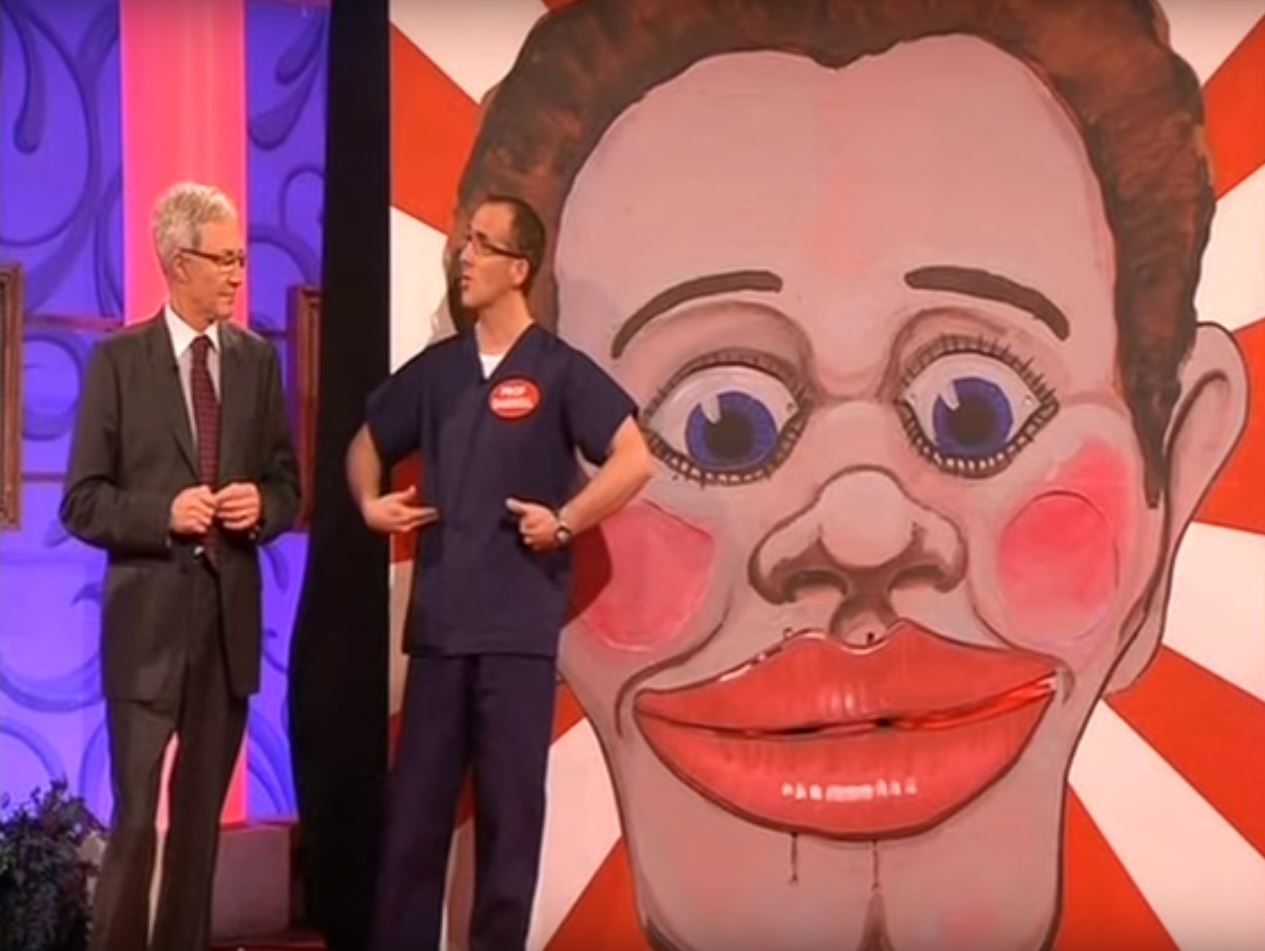
Darrell Evans
We chat with Professor Darrell Evans about an infamous farewell video, his TV role discussing the brain, blushing and belching, and his ambition to enhance the student experience as the new Deputy Vice-Chancellor (Academic) at the University of Newcastle.

I wasn’t an overly mischievous kid, but I liked discovery and creativity. I grew up in Kent in the South-East of England. My house backed onto a woodland and I loved making camps with mates, and looking at the surrounding nature. That’s probably what started me on the road to thinking about biology as an area of study. I remember a primary school project which was looking at how leaves develop and grow on a tree. I had a little jam jar with a twig in it and I watched it grow, fascinated by how the leaves would start to bud and open. I was excited by what I was seeing.
When I got my first academic post at Cardiff I felt like now the future was ahead of me. But then there was also this dread – suddenly I had to develop my own lab and I was in charge. As a PhD or postdoctoral student, you were always part of somebody else’s lab, and suddenly you’re on your own two feet and you have to grow up. But part of that was exciting. That would be a career highlight. Also those times when you get your first paper published, your first grant, and you think ‘People believe in me and what I am doing and thinking’. I think as a scientist that’s really important, that your peers are acknowledging it’s worthy stuff that you’re doing and you’re adding to the knowledge community.
Those times when you get your first paper published, your first grant, and you think ‘People believe in me and what I am doing and thinking’. I think as a scientist that’s really important, that your peers are acknowledging it’s worthy stuff that you’re doing and you’re adding to the knowledge community.
It was naturally exciting going on TV in the UK. Outreach is so important to me. We all have a body and need to look after it, so how can we engender excitement in the general population about anatomy? I did get a couple of opportunities to go on the TV and do some work there. I did a chat segment for the Paul O’Grady Show in 2009 which was about the brain. The joy I got was going back into my work the next day and one of the cleaners came up to me and said, “I saw you on TV talking about the brain, and I never knew….” and as soon as she said that, I thought “that’s exactly what we wanted to happen”. It was a good opportunity for us to show anatomy in a way that’s not viewed as stuffy or just as a professor wearing a white coat. We just wanted people to think, ‘Ahh yes this is really interesting stuff’. I was pleased to be asked to do another segment on human bodily functions like hiccupping and blushing.
In the UK, I had a great opportunity to join a new medical school, Brighton and Sussex, and contribute to the writing of a new curriculum from scratch. We worked with the students in a real partnership of development, and that was quite new. There are institutions where the traditions are ingrained and you have to question, are the students really part of the thinking? Student voice is really important to me and we were really trying to embed that. Irose up the ranks from Senior Lecturer through to a Professor, Head of Department and then Division, and then I became Associate Dean. In this role I could further direct some of the areas of development and change from a student’s perspective.
I walked into the lecture theatre and it was completely full and suddenly all eyes were on me. It was close to my time of leaving Brighton that one of the students came up to me and said, “We’ve got a problem with one of the lecture theatres, would you come and have look?” I thought that’s a bit odd but agreed to help. I walked in and they played this farewell video they had put together, which was pretty emotional for me to watch. Then I was to say something at the end of it and I thought, ‘Oh gosh, what words can I come up with!’ I’m not normally lost for words but on that occasion, I was. The nicest thing was that I’d made some impact on their learning. Hopefully I inspired them, got them to think differently, and made their learning more memorable. Particularly being an anatomist for medical students, it’s their foundation, so if they can think back to some of those things that we touched on, that’s really going to help their practice and keep them well based as practitioners.
I got a headhunting call to go to Monash and the agency said, “Monash like what they have heard you’ve done at Brighton and Sussex, would you like to do that on a larger scale?” I said, “How large?” and they said, “70,000 students”. That was the fun element of it – could we really make a transformation in the education space? I had a really good time there, we really challenged what we did, how and why we did it and I think we really moved the big ship that is Monash in a new direction. I spent four-and-a-half years there and then the time was right for a new challenge for me.
The opportunity at the University of Newcastle arose and it meant I could think more fully about the student experience, that’s the bit I’m really excited about. As the Pro Vice-Chancellor of Learning and Teaching at Monash, I was very concentrated on that, but now I have this opportunity to think of all elements of a student’s experience whilst they are with us. How do they engage with us at the University? The way I like to look at it is to think about how we encourage them to want to be part of our family. How do we welcome them to the family? How do we support them as family members? How do we welcome them to that extended family which is the alumni? It is that full journey. Learning and teaching obviously sits as a major player but it all those others things too: Is it easy to enrol? Is it easy to get support? What fun opportunities can we provide? That’s the stage that I am in right now, thinking about how all of that can come together.
Now I have this opportunity to think of all elements of a student’s experience whilst they are with us. How do they engage with us at the University? The way I like to look at it is to think about how we encourage them to want to be part of our family.
I’m working towards a much more interconnected approach to education so that everyone, including the students, really feels part of creating a student learning journey. What I have noticed, like at a lot of universities, is there’s a lot of great stuff happening but it’s pocketed and we’re not always connecting things together. There’s the fantastic NeW Space, but how are we ensuring that students understand why that’s a different type of space? How do we support educators to think about teaching differently in the space? I know there’s been great work done already with flipping classes, and the next step is to think about personalising learning for students. What I mean by that is what they study, when they study, how they study it. There’s that phrase, ‘Anytime, Anywhere, Any device’. And it really is thinking about that because if we’re not at that leading edge of disruption, our prospective students will decide to go elsewhere. I think Newcastle has a huge amount to offer so how do we put that in the right format so students really want to engage with us? It’s a holistic approach to our educational strategy and if someone looks back and says, ‘Oh yes, we got it together’, that’s a good way of looking at it.
One thing I have already noticed at the University of Newcastle, which I think is really good, is whilst there is a lot of change happening, I like it that people can laugh. That’s really important to me. I worked for the Provost at Monash and one of the greatest things about her was while we took our work really seriously and we were passionate about we did, going past her office and hearing gales of laughter was a real joy. Sometimes we’re seen as a stuffy environment and while there can be challenging times, I have already met people who put a happiness around things.
The University of Newcastle acknowledges the traditional custodians of the lands within our footprint areas: Awabakal, Darkinjung, Biripai, Worimi, Wonnarua, and Eora Nations. We also pay respect to the wisdom of our Elders past and present.

